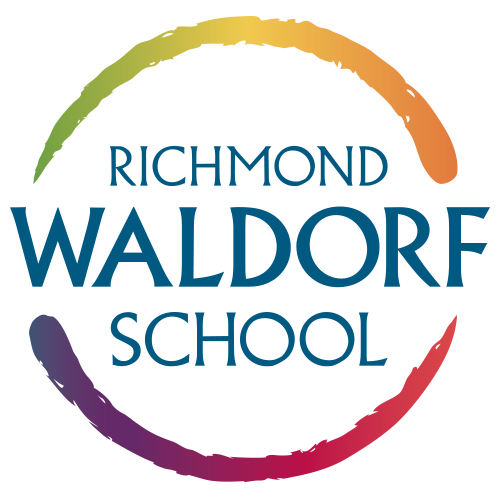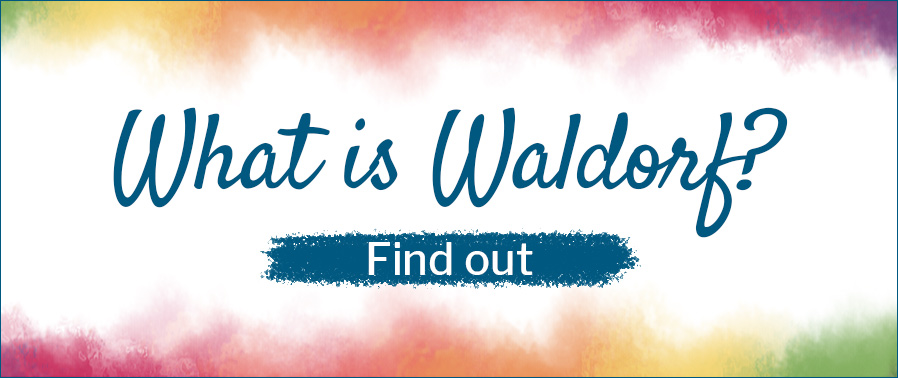Beyond Textbooks: Unleashing the Power of Hands-on, Interdisciplinary Learning
Waldorf education prepares graduates with a range of skills and knowledge for finding creative solutions to complex problems. We achieve this through hands-on, project-based, and interdisciplinary teaching and learning. Children learn to apply math through games and physical constructs, to explore the laws of physics through field experiments, and to use their artistic abilities to convey their understanding of different subjects. In this way, academics gain context and meaning for children. Students discover that learning is a lifelong pursuit that continues well beyond the classroom. They develop a fascination with the world around them, how things work, and how to put their skills and talents to creative use in the world.
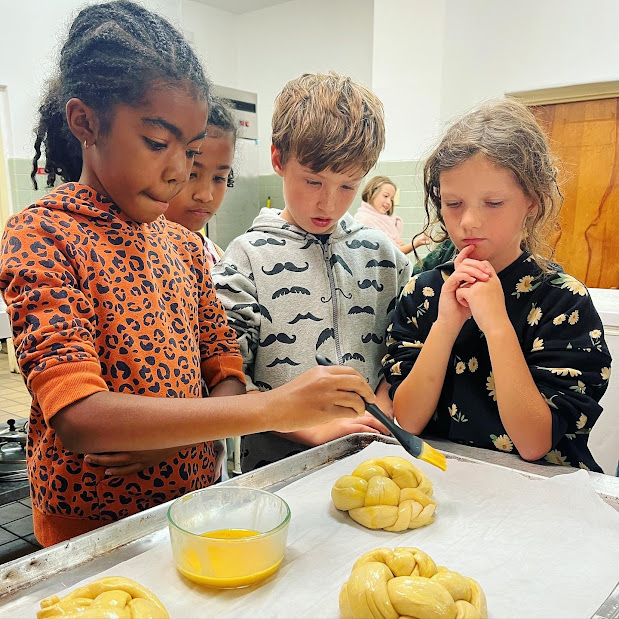
A recent blog from American University School of Education shares that an interdisciplinary approach to education “accomplishes two things that the traditional method of education does not. First, it expands the learning experience by drawing upon multiple subjects at the same time. Second, it promotes critical thinking by encouraging students to engage in complex problem solving.” According to the Science and Research Institute at Carleton College, interdisciplinary learning teaches students the four following cognitive skills.
- Recognizing biases
- Thinking critically
- Embracing ambiguity
- Analyzing ethical concerns
At Richmond Waldorf School, we believe that students thrive when exposed to a hands-on, integrated curriculum that is developmentally appropriate and grounded in artistic and practical work. Waldorf alums succeed in a variety of different public and private high schools, and move into career paths fueled by their passions, and notably are often seen to have the ability to find balance and joy in life. Our educational approach strives to prepare students for life with practical skills, an ability to think freely, and a mindset of contributing to help others. Our goal is to nurture developing students so they become curious, confident, and capable individuals who can bring forth healthy change in the world. The group-focused learning environment helps children learn how to bring their unique talents to a group setting, and how to collaborate and problem solve.
In Waldorf schools, academics are presented in month-long block studies that blend subjects together so that students are immersed in the intersection of topics. Many examples of interdisciplinary lessons can be found within each grade’s curriculum, such as the 3rd graders preparing vegetable soup, pies, and bread to practice skills in measurement, nutrition, and cooking. Or perhaps the 7th grader’s study of the renaissance, which weaves history, art, science, and discovery together in a way that deeply engages and teaches growing minds. Our Waldorf curriculum builds the student’s inner motivation to learn by weaving music, theater, movement, and visual arts into each subject. This makes learning fun while fully immersing the students in their work.
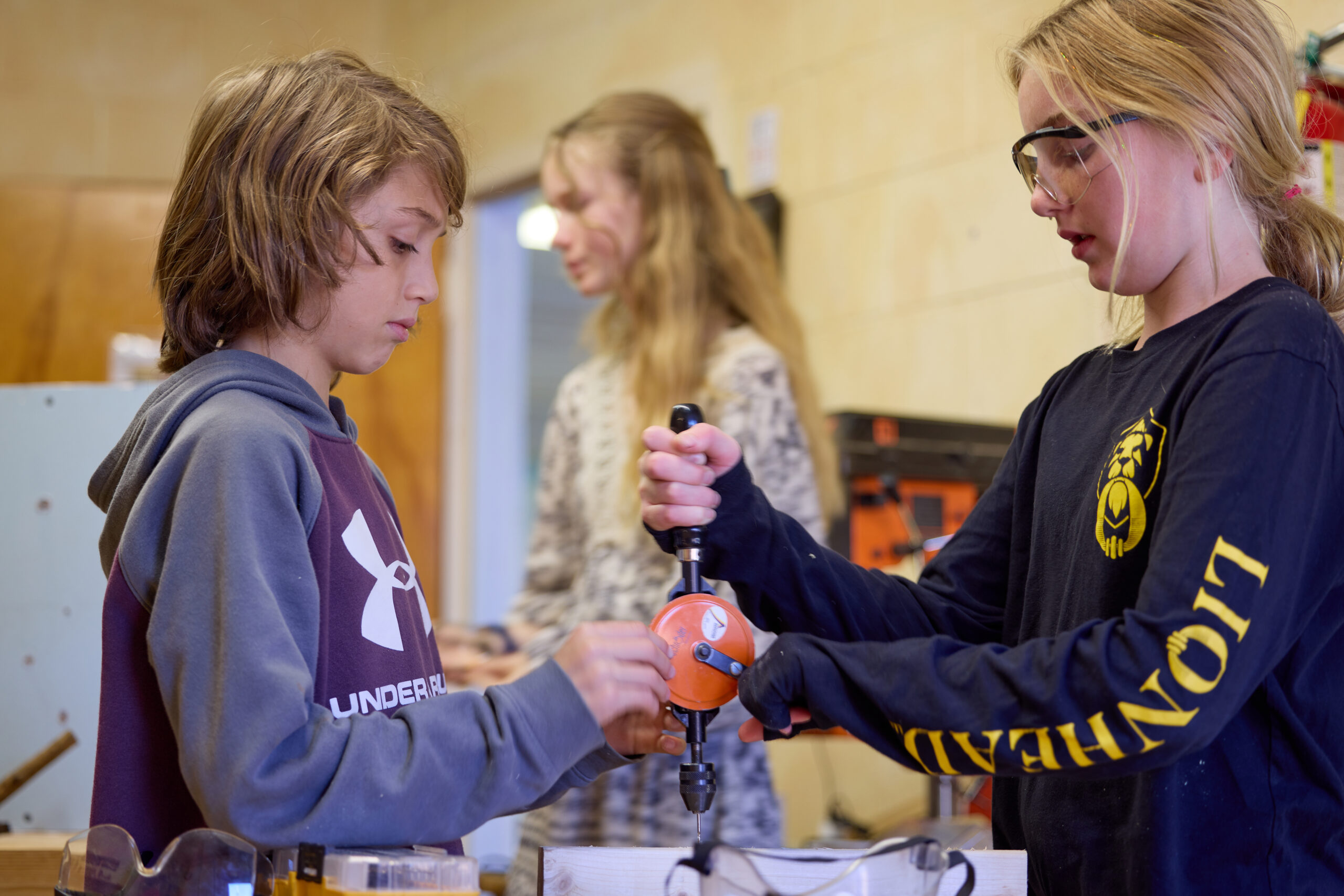
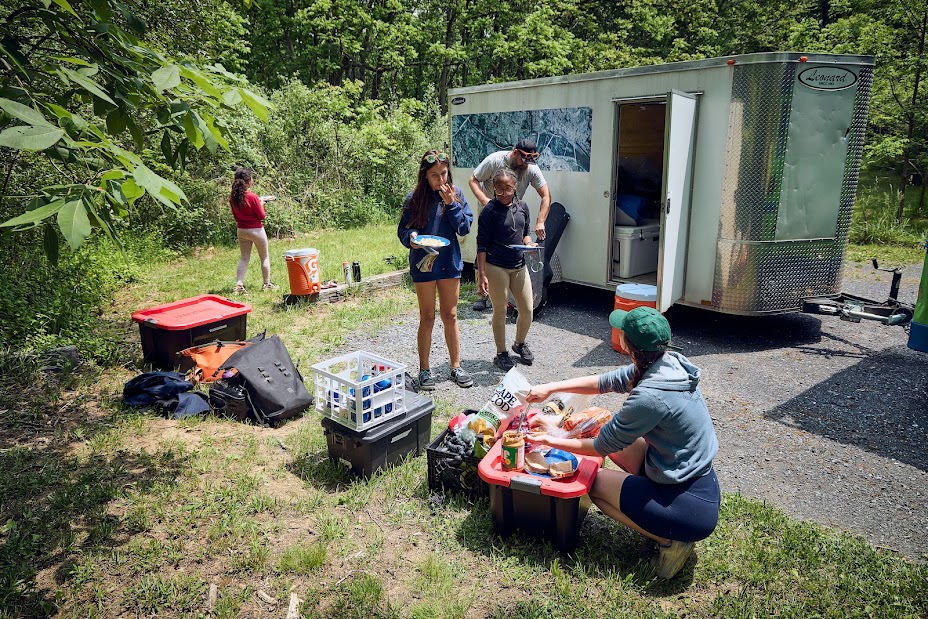
A foundation for creative, critical thinking begins in our Preschool and Kindergarten Early Childhood program, and further develops and thrives as the students move through elementary and middle school. For students at RWS, learning is steeped in meaning and connection in every subject. Waldorf teachers build deep relationships with their students so that they can scaffold bridges of connection and deepen the learning for children in a way that brings them to the edge of discovery and mastery of new topics.
In addition to core academic subjects, our Elementary and Middle school curriculum includes:
- General and instrumental music, including Strings
- World and classical languages
- A range of experiential activities like knitting, woodworking, painting, and cooking
- Movement, games, and theater
- Extensive outdoor play and adventurous field trips
- Laboratory and natural sciences
This approach draws students in and creates lasting memories. One alumni, now using her nutrition degree to serve those in need through community-based farming and food accessibility reflected, “I think that Waldorf education particularly cultivated my passions for languages and language learning, and then also for gardening and farming and my connection to the land. Having the ability as a young person to explore languages, not just in a super academic way, but way more experientially, where you’re cooking and you’re singing songs… I’m so grateful for the out-of-the-box thinking that Waldorf school supports and for where I am now because of my time there.”
Want to Learn More?
We would love for you to explore the Waldorf approach! Sign up for a tour, or watch our school video where students talk about life at Richmond Waldorf School. Get to know us and see if RWS is right for your child.
At Richmond Waldorf School, we recognize that our student’s physical, social, and emotional well-being are a key part of their ability to learn and thrive. We look forward to meeting you and sharing more information about Waldorf education.
Valerie Hogan
Enrollment & Marketing Administrator
admissions@richmondwaldorf.com | 804-377-8024 ext 3
Richmond Waldorf School is a non-profit, private school in Richmond, Virginia offering Waldorf education for grades Pre-K – 8th grade.
